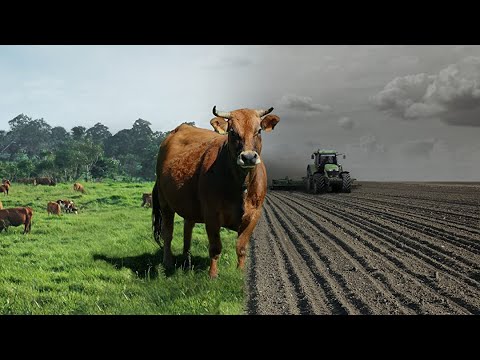The world is overwhelmed when choosing what to eat. Sacred Cow probes the fundamental moral, environmental and nutritional quandaries we face in raising and eating animals. Focusing on the largest and perhaps most maligned of farmed animals, the cow. In the Sacred Cow book, Rodgers and coauthor Robb Wolf use scientific data to demonstrate how animal source foods contribute to healthy diets and a healthy planet. The lessons of the book provide the foundation for the film, which covers topics like the rise of industrialized agriculture and processed foods, the food pyramid, and school lunch menus to show how beef has been unfairly stigmatized. Butchers, professors, former vegans and, particularly, farmers take center stage to make a case for raising cattle.
“The film is really [teaching] lessons about regenerative agriculture through producers,” said Rodgers. As explained in the film, regenerative agriculture is “a practice that uses a diverse mix of animals and plants to mimic, rather than dominate, nature” while repairing the soil and increasing productivity on farms around the world.
To illustrate, the film highlights ranchers using such methods to raise cattle that are regenerating more than a million acres of Chihuahuan Desert back into grasslands without using seeds. When cows are frequently moved to graze in a way that mirrors wild herds of ruminants, their manure, saliva, urine and hoof impacts help promote plant regrowth, and overgrazing is prevented.

